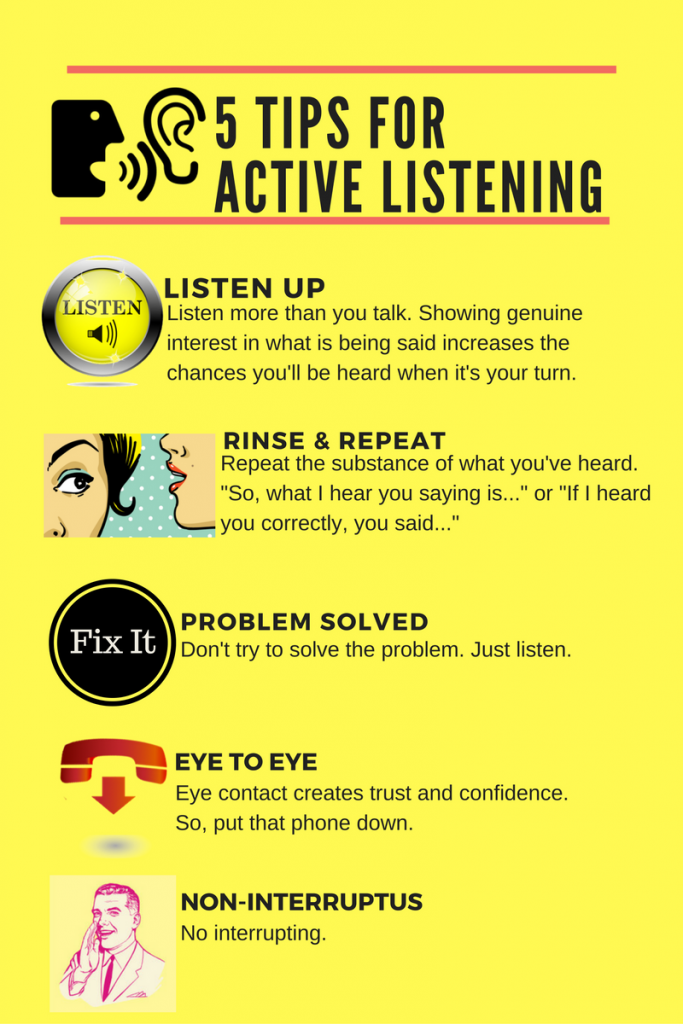Not too long ago a friend and I encountered an impressive person in the park asking for donations for a community cause. The young woman was any sales manager’s dream, she was charming and tenacious, she had fingertip facts, and she was focused on getting you to contribute to her cause. A born salesperson, but she lacked one essential quality; she was not an empathetic listener.
Most of us take listening for granted, but not all listening is created equally. Most listening theorists agree that active or empathetic listening is a multidimensional process consisting of three components, sensing, processing, and responding. If you are not using these three, it might be costing you in all aspects of your life.
According to Dr. Lyman Steil’s book, “Effective Listening” example, if 144 million workers in the USA makes a simple $10 listening error the cost to business would be well over a billion dollars per year. Poor listening habits are the cause of losses in revenue, profits, productivity, and relationships inside and outside of work.
On one of my first copywriting assignments, I met with the client and discussed the brief, asked questions, took notes, asked more questions. Then I went away and wrote two drafts that the client didn’t seem happy with. In total bewilderment, I scheduled a face to face meeting to figure out what I was doing wrong.
After our meeting, I realized that I had heard the needs of the client, but I had not been an empathetic listener. This discovery at the beginning of my career informed every other assignment and made me a better writer. Though I was sensing, processing, and responding I did not contextualize the information. Listening for the facts and not the substance is not empathetic listening.
Have you ever gone into a shop or called customer service only to find yourself talking right past the person who’s there to help you. I call it the, “would you like fries with that?” syndrome. No matter what you ask, the pre-programmed response is, would you like fries with that? It’s common to blame the clerk or the call center when the fault really lies in their training and the lack of value placed on active listening.
In her groundbreaking work on empathy in nursing, Theresa Wiseman says empathy has three main components.
- Perspective taking (standing back, seeing the world from someone else’s view.)
- Comprehending without judgment (turning off your brain’s effort to calculate how wrong the speaker is and how you’re going to fix it.)
- Recognizing commonality and reflecting it back (looking for the shared perspective in what you’re hearing and letting the other person know you get it, you understand.)
There are few quantitative studies looking at active listening in business offline, but online we have practices and data to bolster how vital active listening can be to any successful enterprise.
The entire field of UX, user experience is grounded in listening carefully to the nuances of the user’s involvement and quantifying the results for better outcomes for both sides.
No copywriting and content creation effort can be successful without understanding who the audiences and what they want and need. A/B testing stripped to its essence is really just listening to what a given audience prefers and then analyzing the results.
The good news is that being an empathetic listener is a learned behavior.
Here are five ways to become a better active listener:
1. Talk less – Listen more. The need to dominate the conversation by imposing ideas on the other person most often creates a communication shutdown. Encourage the speaker to fully express their thoughts. Showing genuine interest in what is being said establishes trust.
2. Make eye contact with the speaker. Not in a creepy way, just avoid looking around the room. That means turning off your phone.
3. Repeat back the information as you receive it. “So, what you’re saying is…” “If I hear you correctly…”
4. Don’t interrupt.
5. Don’t try to solve the problem with your reply.
Empathetic listening can change the way you work, think, and live.
Take the Only Human listening quiz: Only Human

